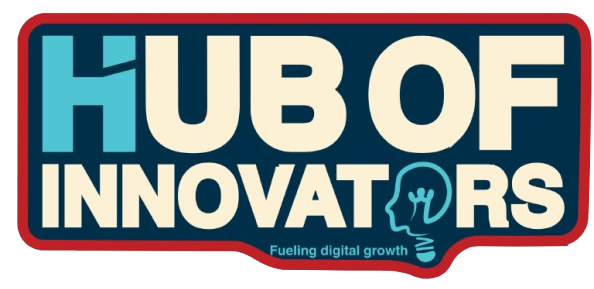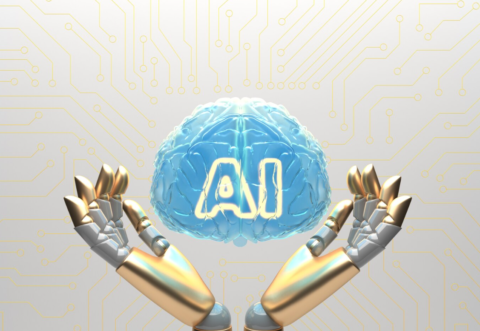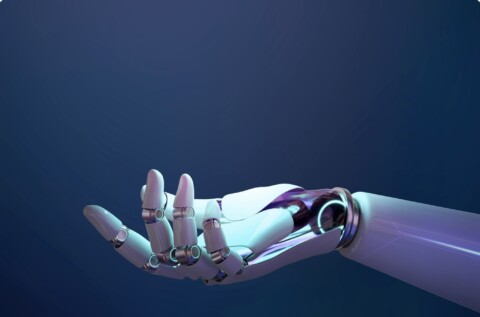B2C vs B2B marketing with AI has become one of the most important conversations in the business world today. Both models share the same goal of reaching people, but the way they do it could not be more different. AI is at the center of this shift, changing how brands understand customers, design campaigns, and measure success.
Shall we start…
How B2C Uses AI
Consumer marketing is most effective when it is personal. Because consumers tend to make impulse decisions, AI facilitates personalization at scale, providing experiences that are richer for millions simultaneously.
Common Applications of AI in B2C Marketing
- Product Recommendations: E-commerce websites recommend products according to browsing and purchasing history, making it easier for consumers to find products they may not have otherwise noticed.
- Automated Customer Service: Chatbots handle routine customer inquiries such as shipping information, returns, and payment problems, providing 24/7 customer service.
- Demand Forecasting: AI helps retailers predict best-sellers and stock up according to seasonal trends and data.
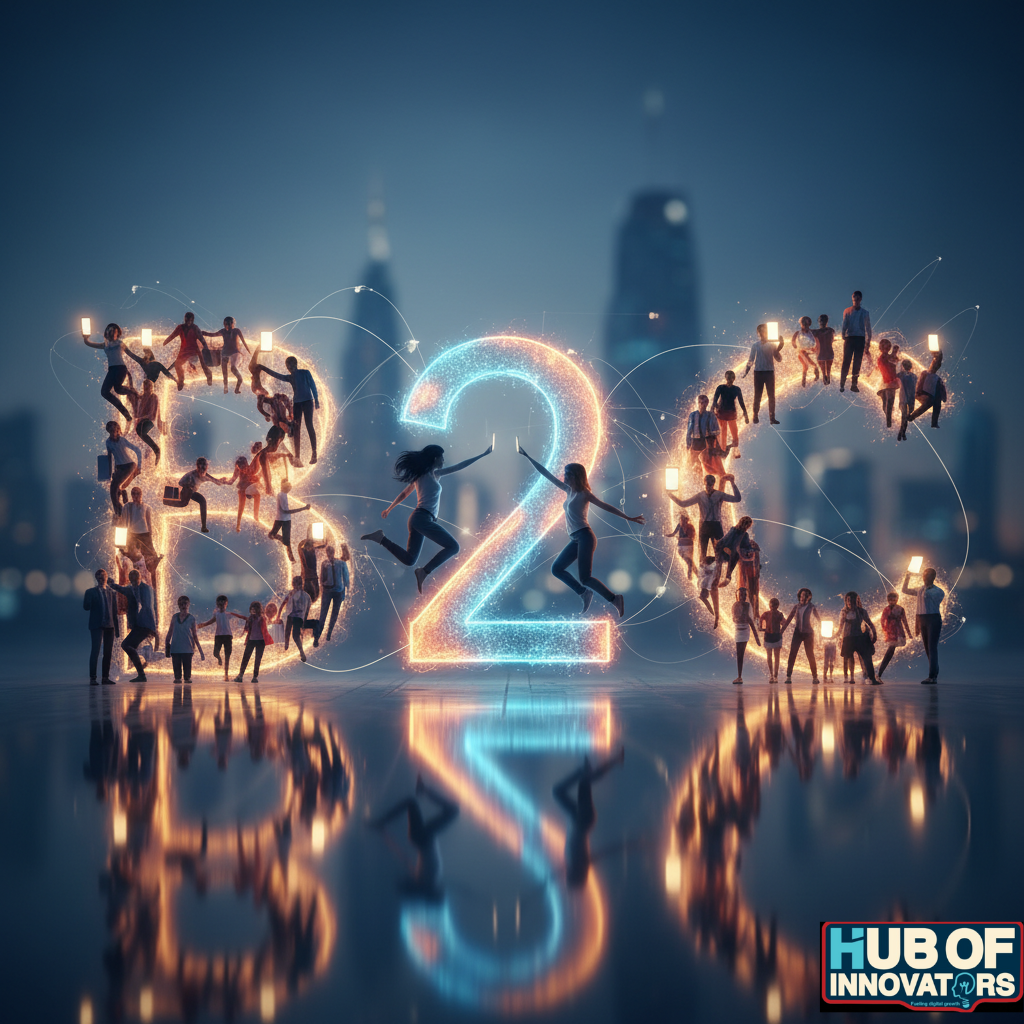
Related article: What AI Can Handle in Marketing and What It Still Can’t in 2025
How B2B Uses AI
In B2B, the buying process is more complex. Committees make decisions, there is a higher risk, and the processes take longer. AI helps by bringing focus and direction to marketing and sales.
Common Applications of AI in B2B Marketing
- Identifying the Correct Accounts: AI identifies which companies are most likely to need a product or service, allowing teams to prioritize them accordingly.
- Personalized Content Recommendations: B2B buyers may be sent customized assets like whitepapers or webinar invites instead of discounts.
- Lead Scoring and Prediction: Predictive models allow sales teams to pursue leads with intent, reducing wasted effort and optimizing conversion rates.
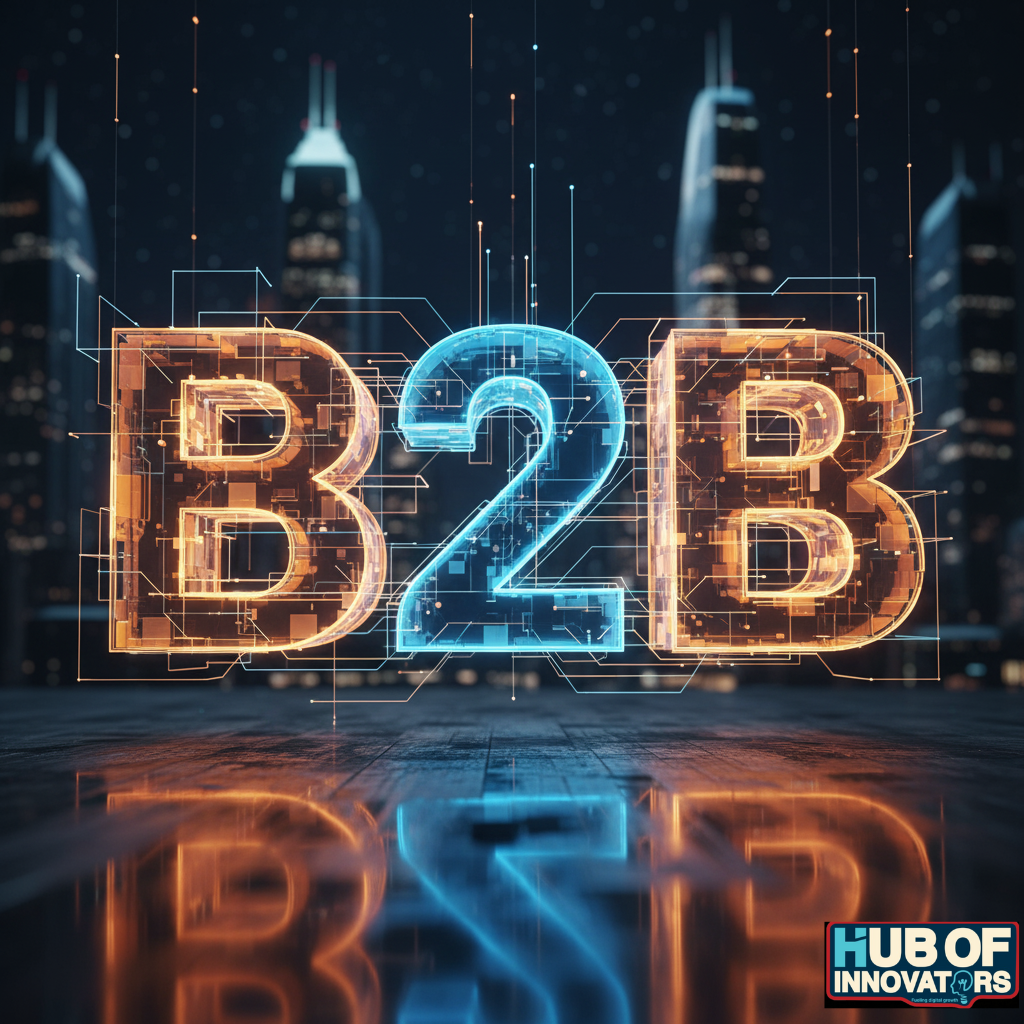
Top AI Marketing Tools
Each tool serves a different purpose, but these are some of the most recognized platforms in 2025:
- Jasper → Content creation (blogs, ads, social posts).
- Marketo → Lead management, email automation, campaign tracking (favored by B2B).
- AdRoll → Digital advertising and retargeting (suited for consumer brands).
- MarketMuse → Content planning and SEO optimization.
- Optimizely → Digital experience testing and experiments.
- BuzzSumo → Content performance tracking and trend discovery.
- Factors.ai → Analytics and attribution (account-based marketing).
- Apollo.io & ZoomInfo → Prospecting and data enrichment (common in B2B).
- Predis.ai → Social content creation and scheduling (ideal for B2C).
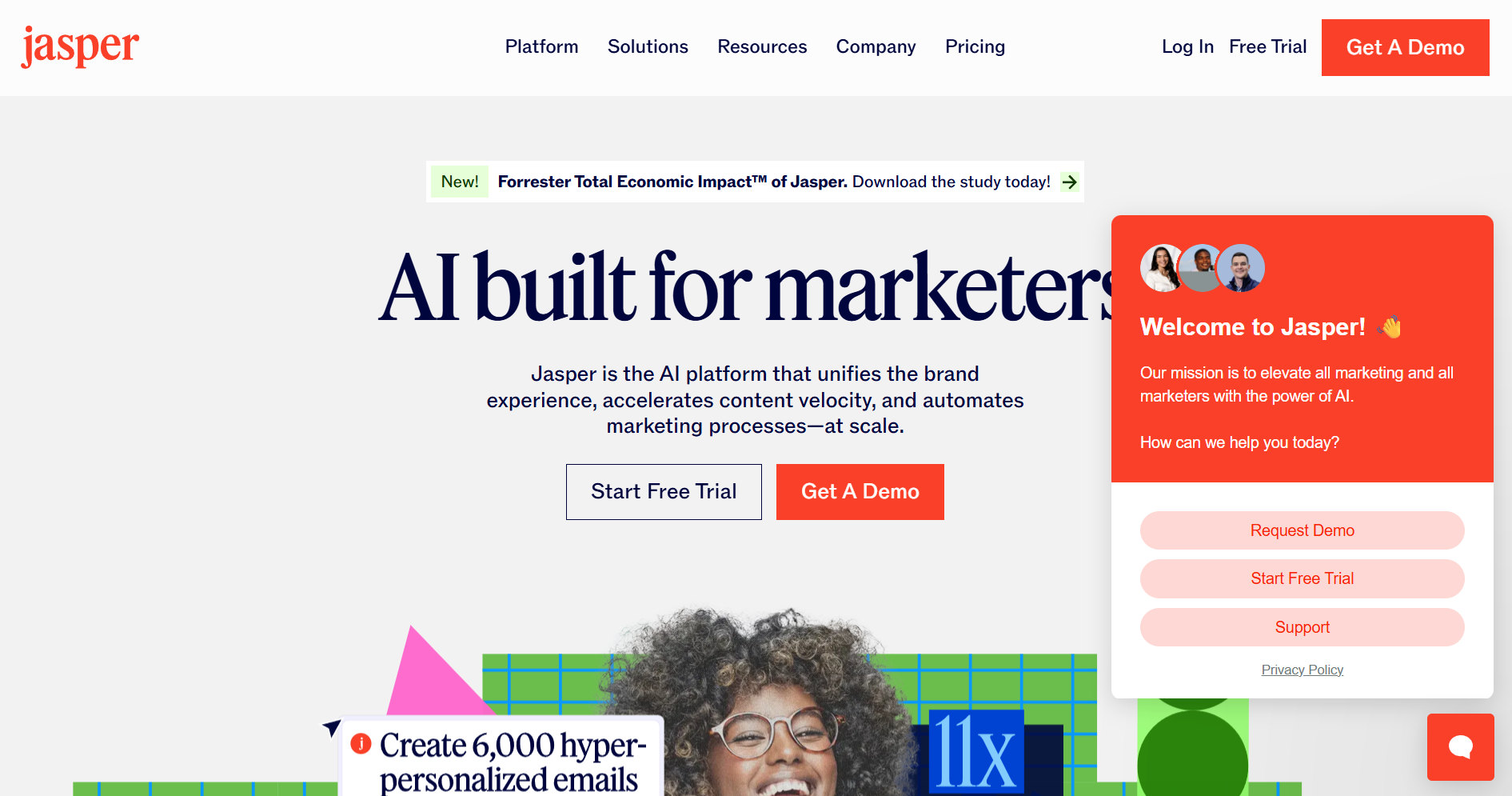
Recent Statistics
The effects of AI on marketing are no longer theoretical, but quantifiable:
- AI global advertising in 2025 is worth $47.3 billion, expected to exceed $100 billion by 2028.
- 93% of marketers who utilize AI report that it accelerates content creation.
- 81% indicate it provides insights faster.
- 90% attribute quicker decision-making to it.
- In B2B, 85% are using AI in content generation, and 83% say it drives productivity.
- Nearly half of B2B marketers save 1–5 hours per week with AI.
- 75% of B2B executives will use generative AI for promotions, and nearly half will use it for lead qualification, customer segmentation, pricing models, and chat support.
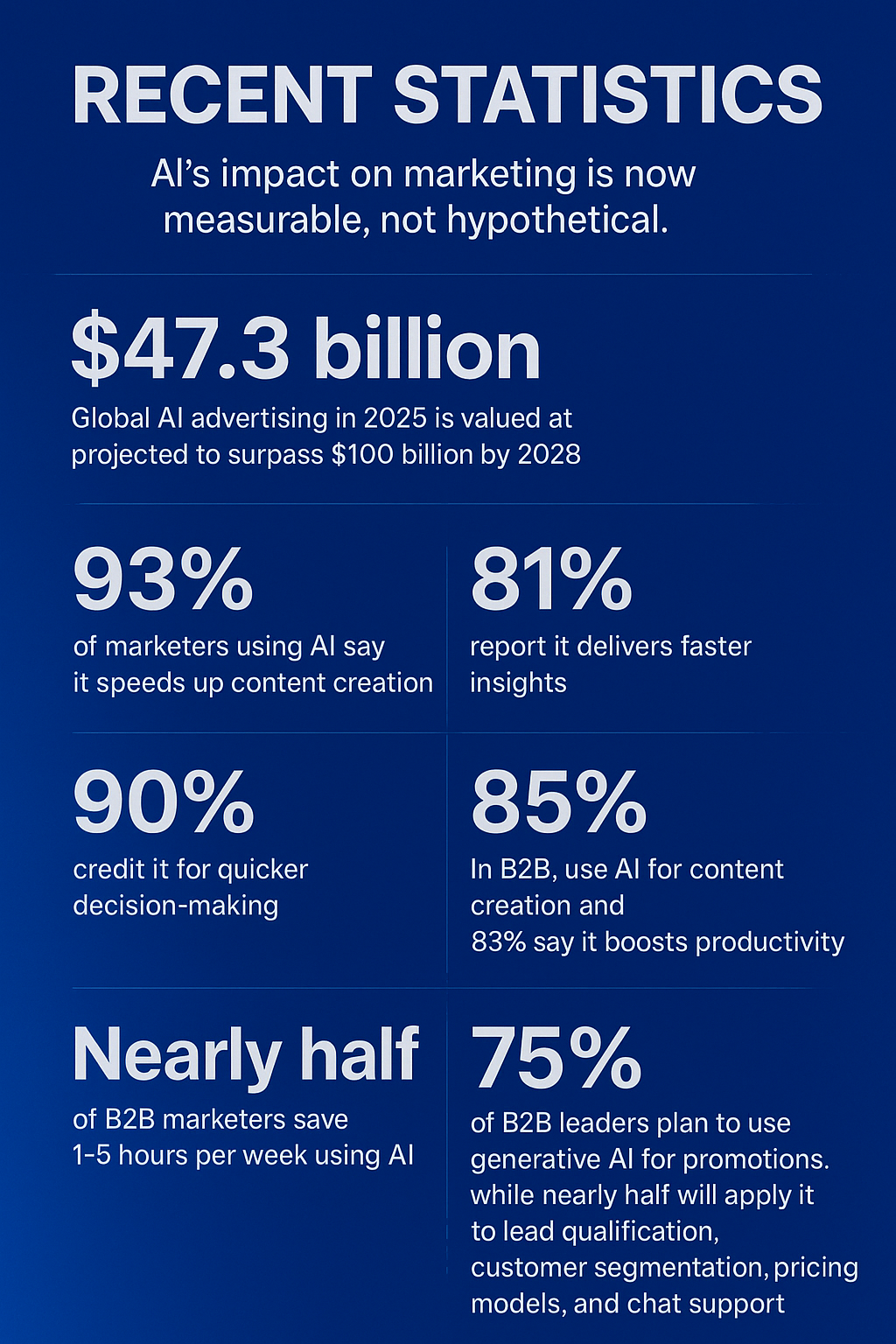
Q&A: Simple Questions About AI in Marketing
Q: Is AI more useful in B2C or B2B?
A: Both benefit, just in differing ways. B2C enjoys faster returns, due to shorter purchase cycles, while B2B enjoys enhanced targeting and relationship management.
Q: Are B2B clients interested in personalization?
A: Yes, but they would rather have personalized insights, industry research, and relevant solutions than product recommendations.
Q: Can small businesses take advantage of the same AI solutions that large businesses use?
A: Yes. Most tools scale. Small businesses may focus on content and analytics, and larger ones use full platforms with automation and lead scoring.
Q: Will AI take the place of human marketers?
A: No. AI handles repetitive tasks like data analysis or draft copy, but humans are always required for storytelling, strategy, and building relationships.
Q: What’s the biggest risk of overusing AI?
A: Losing the human touch. Formulaic, generic content makes customers feel undervalued.
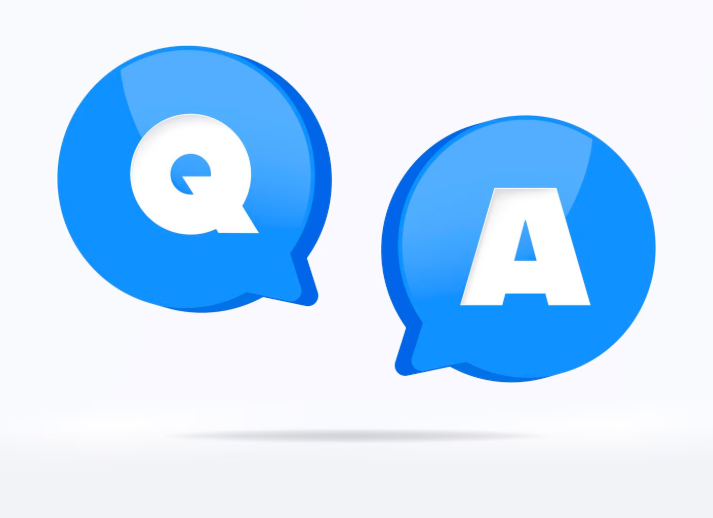
Conclusion
At the end of the day, B2B and B2C aren’t that different; they’re just two ways of connecting people and solving problems. And now, AI is changing how both worlds work. In B2C, it’s all about those personal moments, the quick recommendations, the messages that feel like they really “get” you. In B2B, it’s more about strategy, turning data into decisions, insight, and smarter moves.

